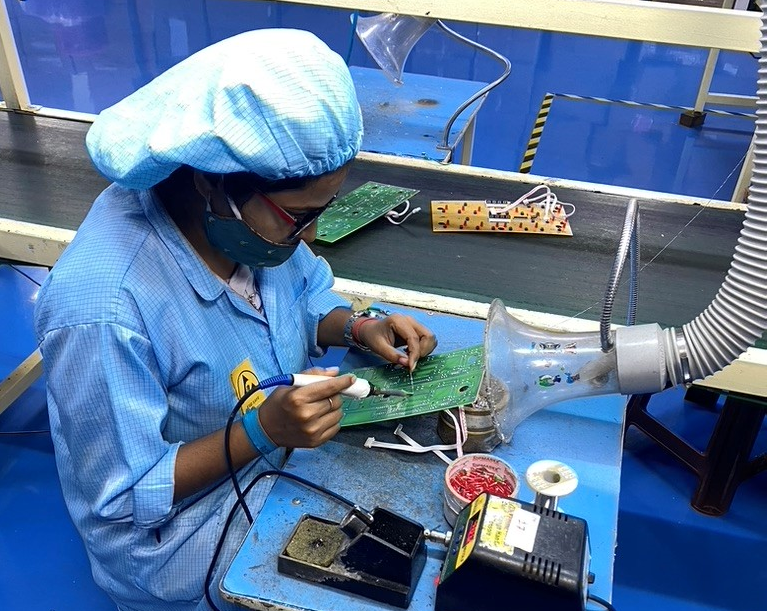
- Date
- 26th January 2024
- Categories
- eCooking, eCooking Products, eCooking suppliers
By Dr Nick Rousseau (Loughborough University).
Quite a bit of my work has involved getting to know the different companies that exist to sell eCooking appliances. I have learnt quite a lot as a result that could be useful for those seeking to source appliances for their own customers.
MECS has published a Directory of the companies we have come across with different products – although we acknowledge that this is not comprehensive. Inclusion in the directory is not an endorsement of the quality of their products. China Impact Sourcing collected some detailed data about suppliers of eCooking appliances for institutions that we have not published – email me if you would like this.
The Global Distributors Collective organised a virtual Trade Show of EPC suppliers, with our support, and the video is available. Again, I have a more detailed description of the companies and products – email me if you would like this.
I have put together some training/briefing on working with suppliers and would be happy to deliver this, online, to anyone who would find it helpful. In a nutshell, the key points that I cover are illustrated below…
The starting point is to be aware that, when seeking to source eCooking appliances, you need to pay as much attention to the supplier themselves, and how they operate, as to the products.
There are broadly three types of supplier business:
- Corporate (major Brand with their own range of products)
- OEM manufacturer (manufacturer that can make to your design/branding)
- Market specialist (niche company with a limited range and a more bespoke business model)
The type of company affects a range of aspects:
- Unit price
- Sales terms
- Brand reputation
- Build quality
- How much can the product be tailored to your market
- Business support and commercial model
- Flexibility
- Ability to deliver product at scale rapidly
- Responsibility for ensuring fit with your client’s needs
So, when selecting a supplier, you should explore all these issues to find one that fits your needs best.
When considering the division of roles between yourself and your supplier, you should be aware of all of:
- Defining the requirement
- Component sourcing and Manufacture
- Design and Tech development
- Shipping
- Importation
- Storage
- Distribution
- Last Mile Distribution
- Marketing materials, promotion and sales in-market
- Sales and user engagement
- Customer support
- Servicing, repairs, spare parts

Preparation
Think through and be well prepared in relation to…
- What do your customers want?
- What do you need?
- Anticipate scenarios that might arise
- Consider short, medium and long term aims
- What are your financial resources?
I have offered a list of potential topics to think about and raise with suppliers in the box at the end of this post.
Negotiation
Any dialogue with a potential supplier will be a negotiation. Again, it pays to be well prepared
- What is your power or position in the negotiation?
- What are you offering the supplier?
- Can you club together with others like you to create bigger orders?
- What is your minimum requirement?
- Where can you be flexible?
- Which supplier could you work with? If more than one, you may be in a stronger negotiating position
Contracting
In order to cement the working relationship and ensure everyone is clear about expectations, you will need to put some legal agreements in place
- Non-disclosure agreements – mutual – to enable you to speak together openly
- Set out roles and expectations – this is the essence of the contract
- Anticipate issues – how to get resolution – what might go wrong and how will issues get worked through, ideally while maintaining a good working relationship
- Enforcement – who would back you up if your supplier lets you down?
- Trust – how do you develop this, on both sides?

Start small
While you may want to grow a major business volume with this supplier, it is wiser to start with something small that will help each side to get to know how each other works and iron out how you will communicate, etc. These stages would be sensible…
- Sample
- Initial order
- Repeat orders
- Expand based on new market intelligence and products
Operational communication
Being able to keep a good flow of communication open is critical as issues will be inevitable and you need to resolve them rapidly and maintain openness that builds trust. Key points to discuss with the supplier include:
- Face to face?
- Keep in touch meetings
- Actions logs/confirmation of understanding
- How to dealing with issues (eg. Who is responsible on each side)
Feel free to get in touch if you would like help with any of this or to request a training/briefing webinar.
……………………………………………
Featured image, top: Inside an induction stove factory (credit: Nick Rousseau).